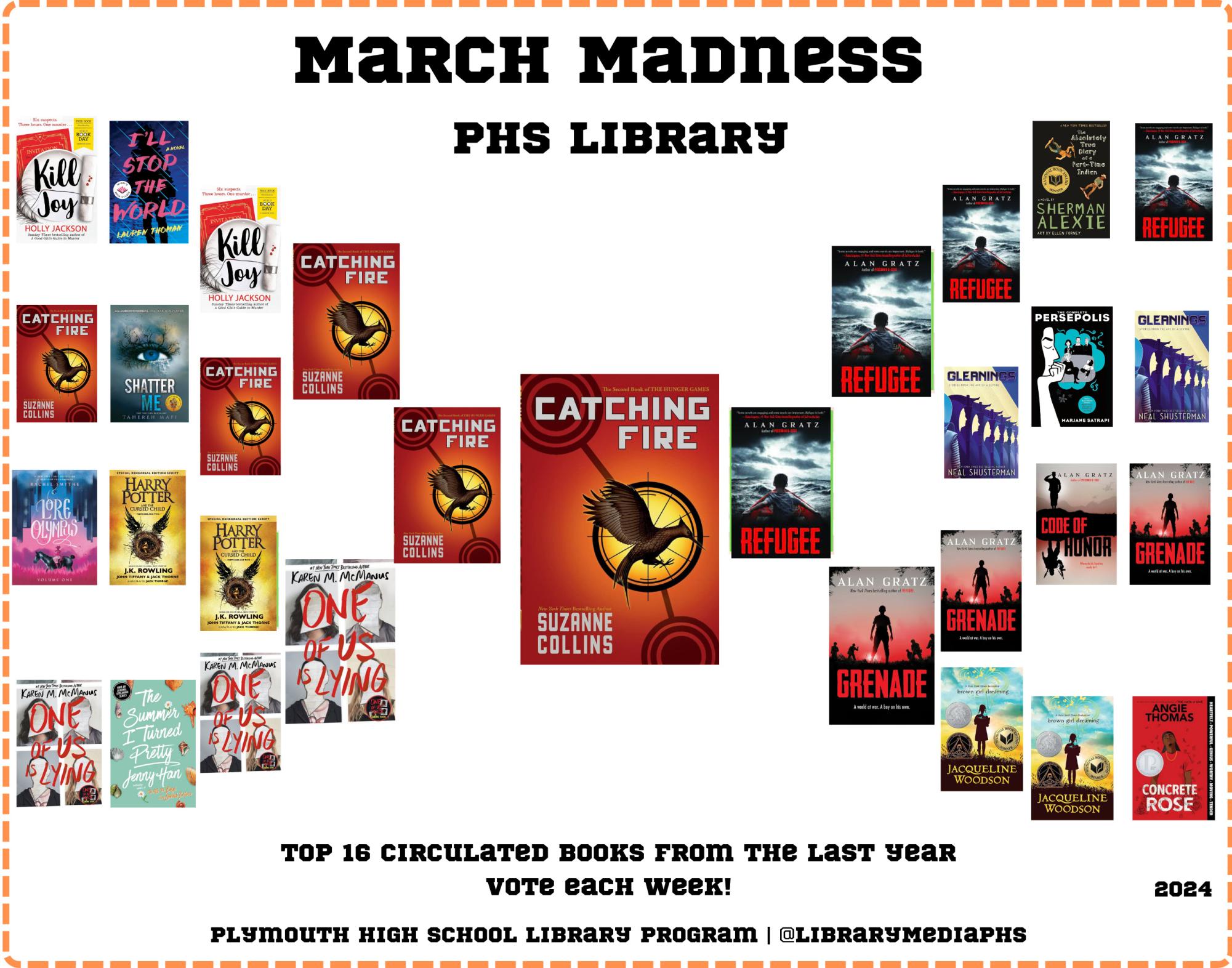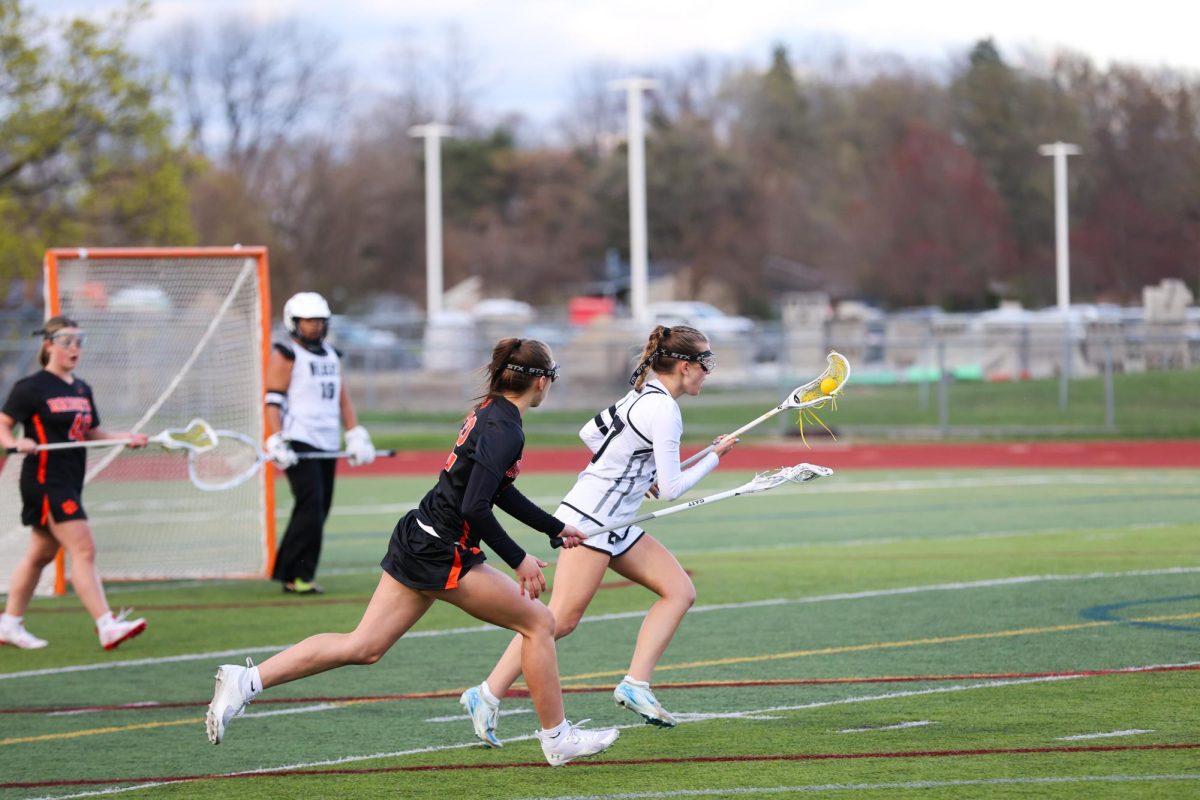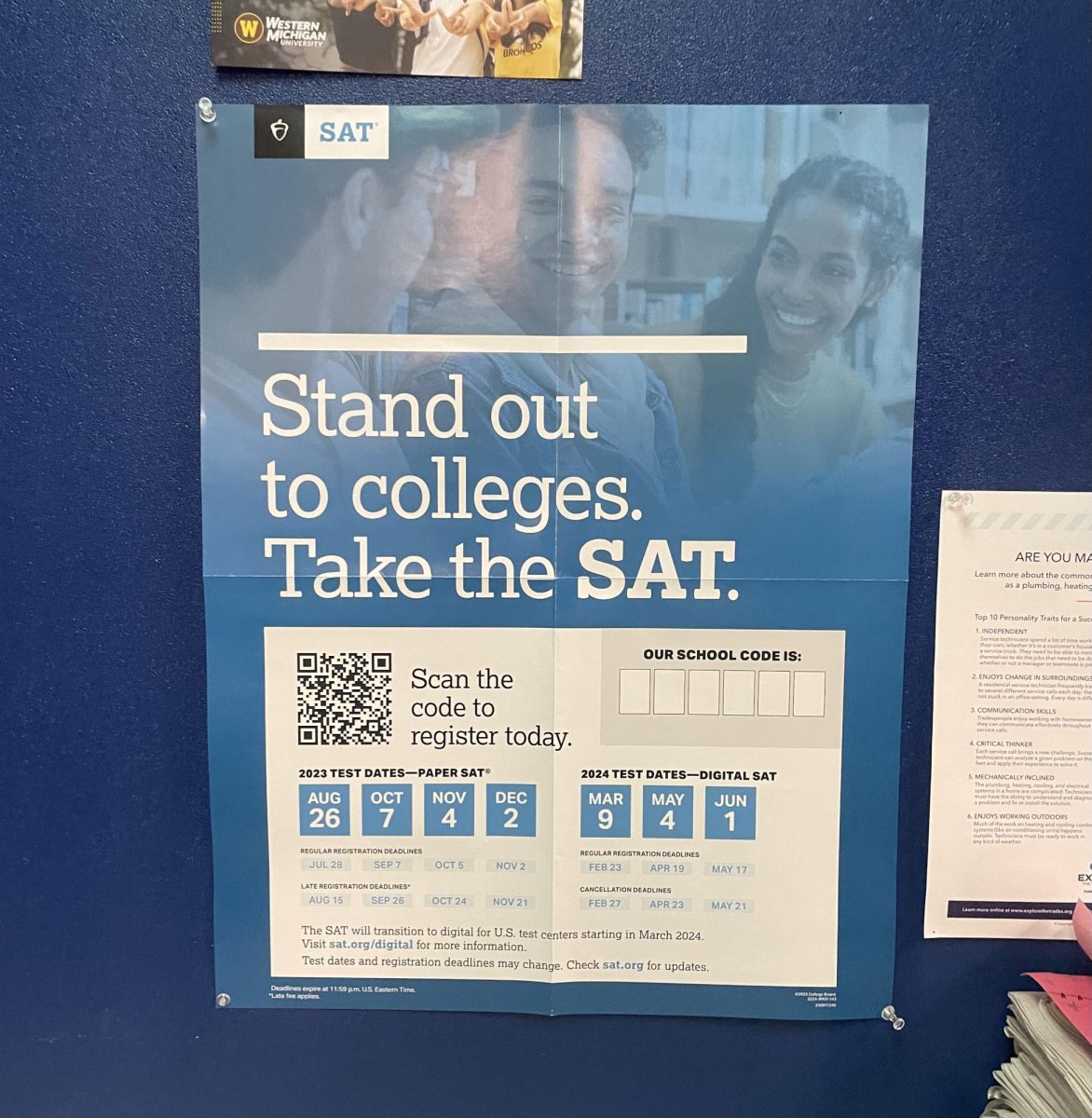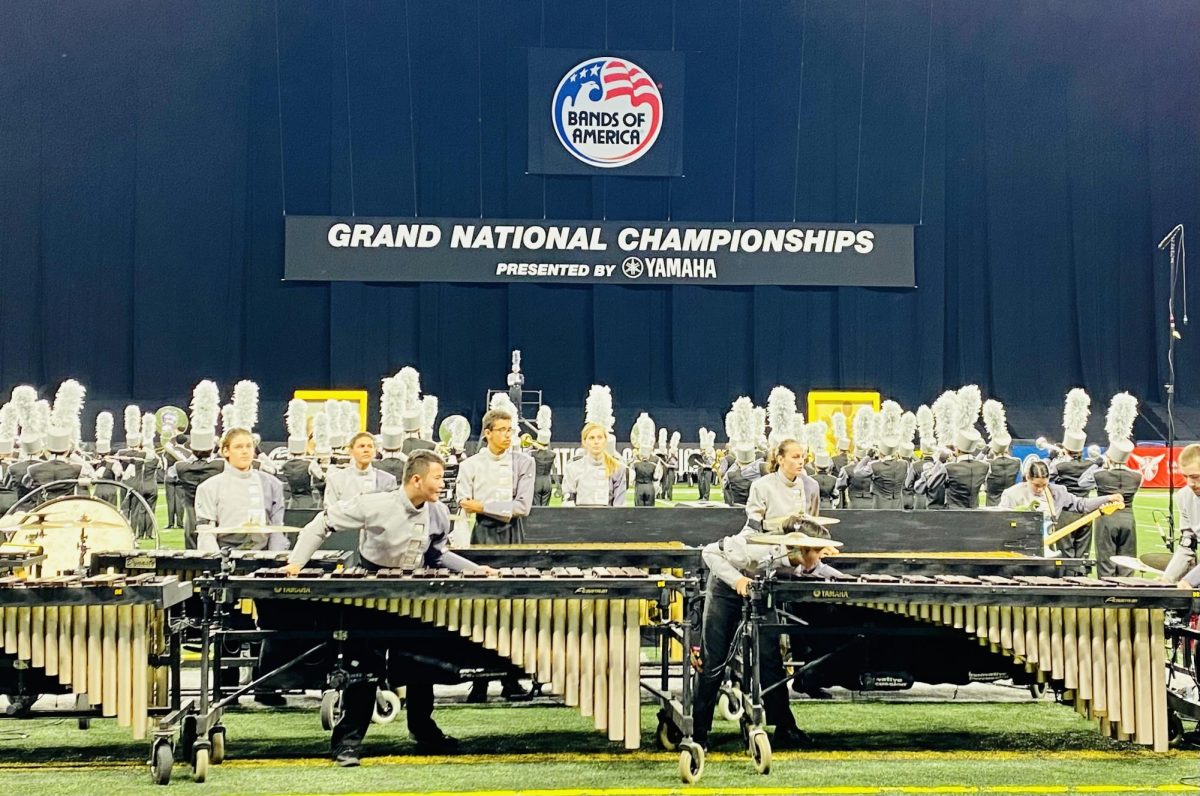Across the nation, March ushers in the beginning of the biggest, beloved event of the college basketball season, with people from all states flocking to witness the March Madness NCAA tournaments. With a combined viewership for men’s and women’s 2024 NCAA Championship games reaching an estimated 38.92 million viewers, some would claim the NCAA tournament to be the month’s main event. However, for the thousands of districts throughout America that celebrate National Reading Month, some would beg to differ. At P-CEP, both worlds collide.
From March 1 to April 8, 2024, the Plymouth High School Media Center conducted its annual March Madness tournament, with books replacing the original team matchup.
The books nominated are selectively chosen to engage students to participate, catering to the common interests of students around the Park.
“The books are the top 16 books checked out by students so far this school year,” said Rachell Genesky, Plymouth High School media specialist. “Using these books ensures that students are familiar with and excited about them!”
Genesky not only pulls the 16 books for competition but leads the whole operation. By using online voting through Google Forms, she also collects and finalizes the votes for each round.
While the tournament adds one more task to the list of responsibilities Genesky has around the library, she plans to continue the March Madness competition due to its favorable response by participants at the Park.
“I love pulling the list each year and seeing what [students]all have enjoyed the most so far. Hearing staff and students talk about which book they hope moves forward each week is one of the best parts [of the March Madness bracket].”
The Mockingjay Rising From the Ashes
This year’s March Madness saw a serious battle in the final round between two reading staples: “Catching Fire” by Suzanne Collins and “Refugee” by Alan Gratz.
Both books aren’t exactly foreign to the PHS March Madness book bracket. In the past two years, “Refugee” has frequented the top 16, along with “Catching Fire’s” predecessor, “Mockingjay,” which won the 2022 championship.
After being in the shadows of the third installment of the “Hunger Games” trilogy, “Catching Fire” finally received its spot under the limelight as the winner with 422 votes.
One of the 422 votes, Anika Sahas-shah, Plymouth junior, expressed her contentment with the “Hunger Games” win. “I really like the plot [of “Catching Fire”], and the movies.”
Although the book received critical acclaim during its initial publication, placing fourth in Time Magazine’s top 100 Best Books of 2009, the rerelease of the original trilogy’s film adaptations on streaming platforms and the release of the 2023 prequel film, “The Ballad of Songbirds and Snakes,” have kept the series in the conversation for generations of high school students.
Today’s teens seem to relate to the main characters who struggle and yet endure despite the hardships the authoritarian governments inflict upon them in order to gain freedom.
Set in a dystopian future for North America, The Hunger Games series surrounds the 16-year-old main character, Katniss Everdeen, who survives the government-invented competition, the Hunger Games. Created to entertain the members of the Capitol and to punish revolting districts after the First Rebellion, pairs of children from each state district are put into an arena to hunt and kill the participants from the other districts in order to try to survive. Ultimately, the game concludes when one victor is left in the arena.
“Catching Fire” picks up with the aftermath of the 74th Hunger Games, along with Katniss being forced back into the arena for the 75th Hunger Games, known as the Quarter Quell. In Katniss’ defiance to the traditions of the games, heightening the war occurring throughout the country due to district revolts, she becomes overt in her resistance towards the Capitol and steps into her role as a symbol of rebellion.
Coincidentally, “Refugee” also observes the same thematic matter. The historical fiction text follows the story of three young teens escaping the powers of their own oppressive governments; 12-year-old Josef Landau flees from Nazi Germany, 11-year-old Isabel Fernandez takes a boat to evade Cuba’s Communist regime, and 12-year-old Mahmoud Bishara leaves from Aleppo amidst the Syrian Civil War.
“I imagine that these books, like many others, speak to the desire of connection, finding yourself [identity and lived experience] in a text while also finding entertainment and escape,” Genesky said. “In our current social, cultural and political climate, looking for and finding these things in books can mean the world. This generation, like many before, is looking for hope and connection.”
The popularity of the March Madness bracket for the book competition at P-CEP provides a clear indication that people would welcome the event being continued.
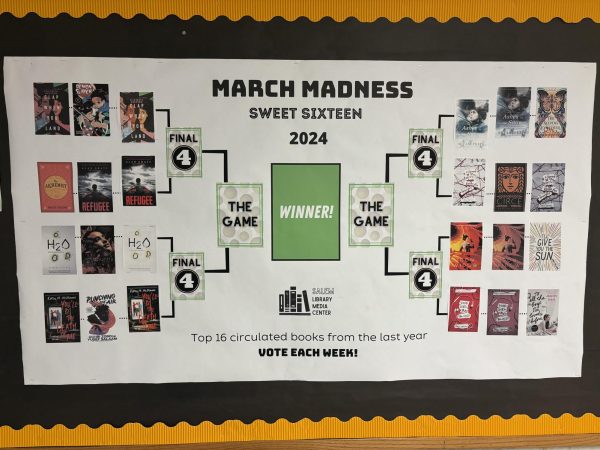
While Plymouth’s March Madness has concluded, Salem High School’s Media Center March Madness is still happening. Students can look for the results outside of the Salem Media Center.



